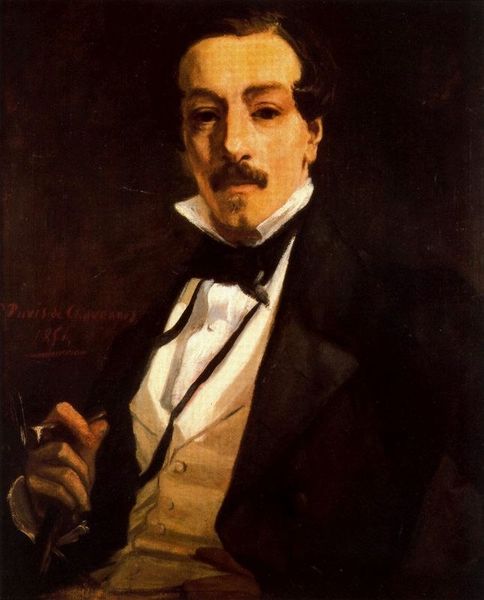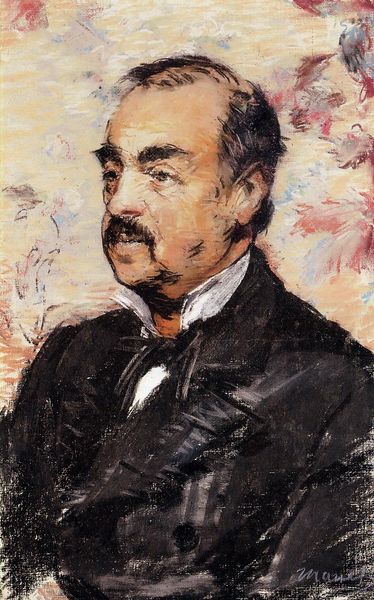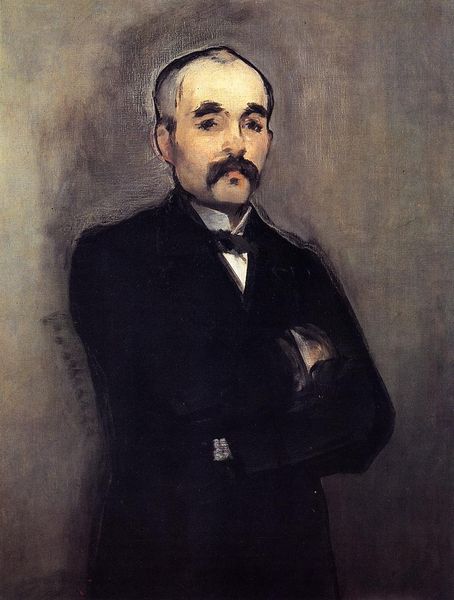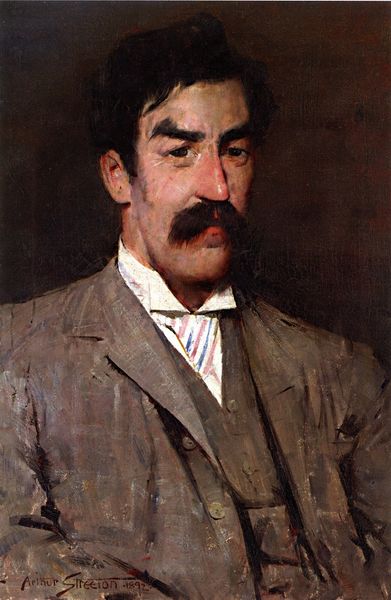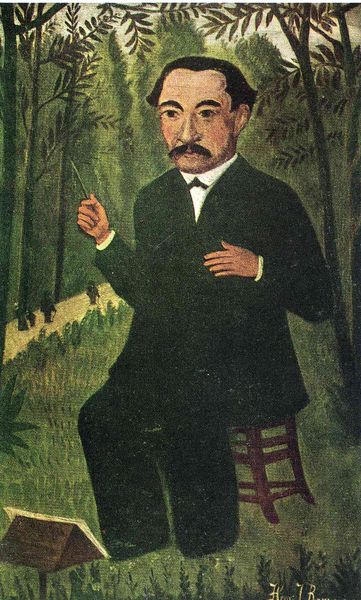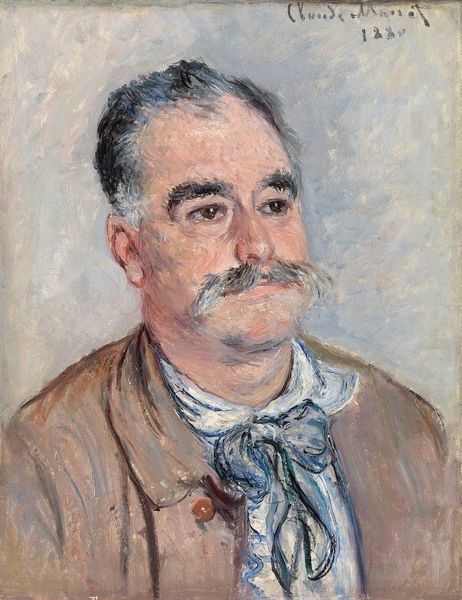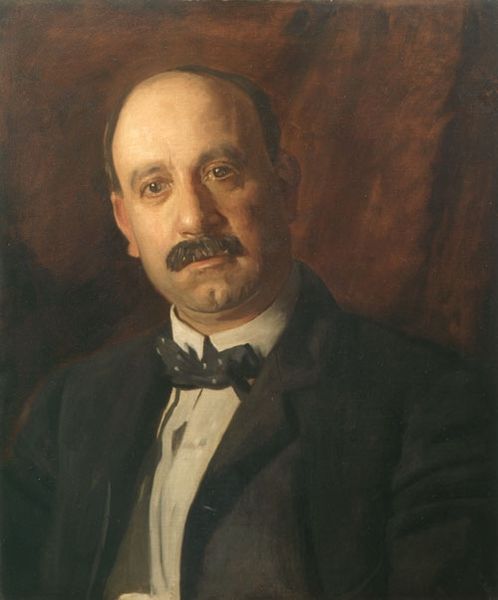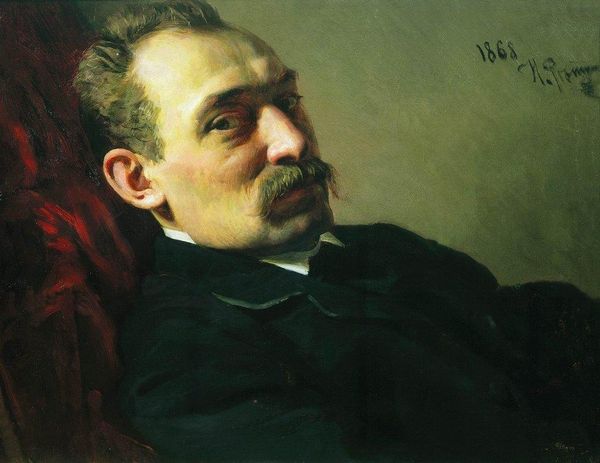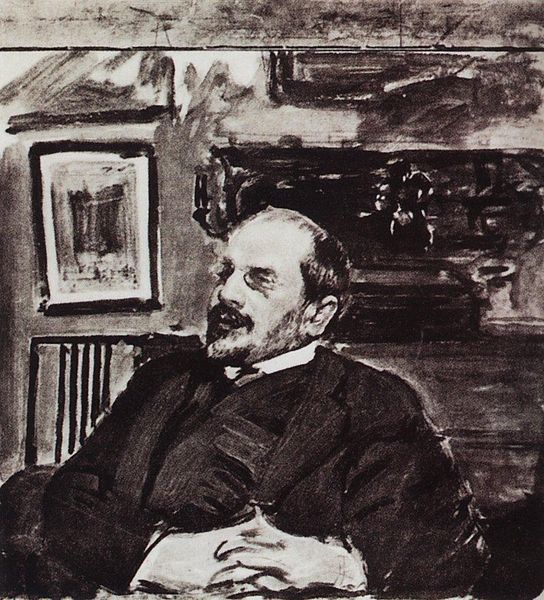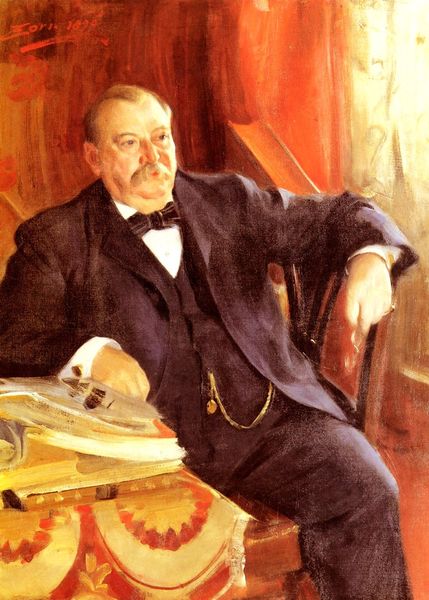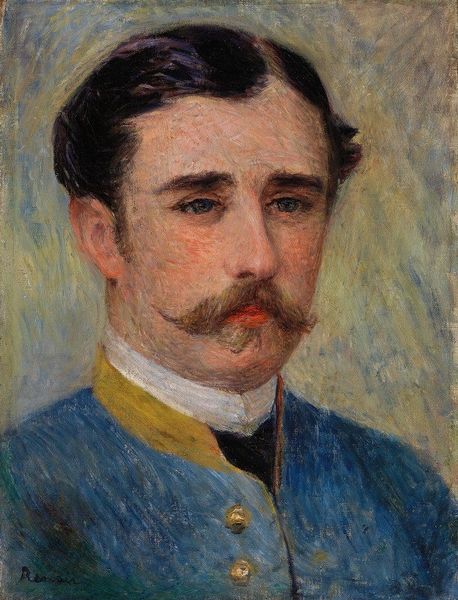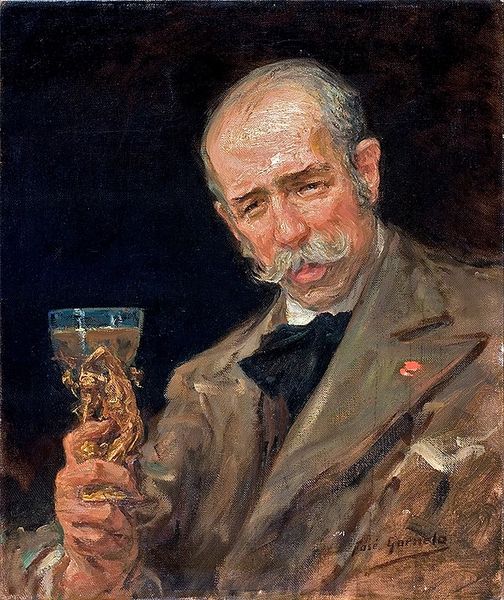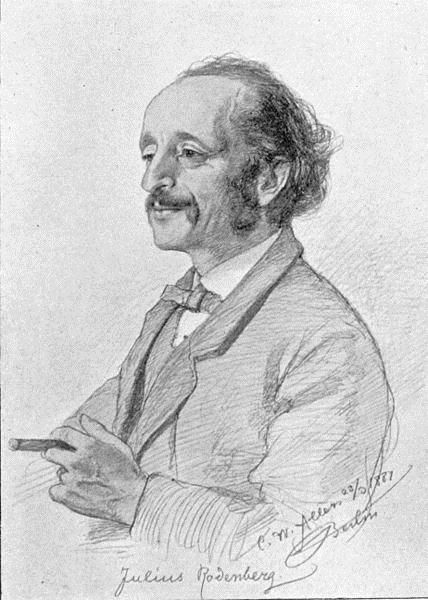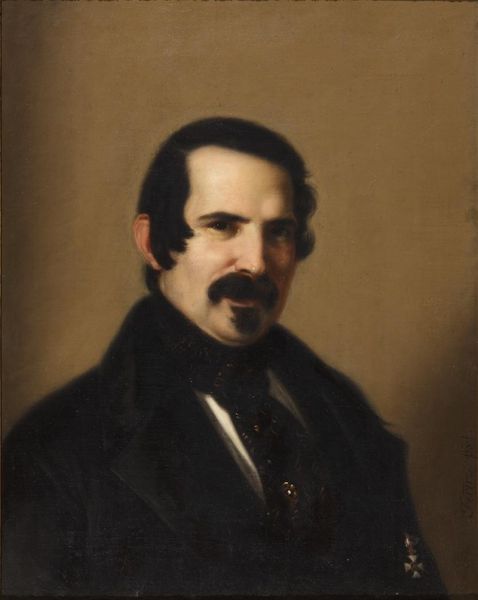
#
portrait
#
portrait reference
#
famous-people
#
male-portraits
#
portrait head and shoulder
#
animal portrait
#
animal drawing portrait
#
portrait drawing
#
facial portrait
#
portrait art
#
fine art portrait
#
sea
#
celebrity portrait
#
digital portrait
Dimensions: 19 x 24 cm
Copyright: Public domain
Editor: This is Henri Rousseau’s *Self-Portrait*, painted around 1900. It's currently hanging in the Musée Picasso in Paris. The details seem deliberately simplified and it creates a rather odd and striking presence. What strikes you when you look at it? Curator: Well, considering the social context, it's fascinating. Rousseau was a self-taught artist, often ridiculed by the established art world. This portrait can be viewed as an act of self-assertion. Notice how he positions himself, almost centrally, and with symbols of bourgeois respectability: the formal suit and bow tie. How does that juxtaposition play in the contemporary Parisian scene? Editor: So you’re saying it was almost a political statement to paint himself this way, given his outsider status? Curator: Precisely! It challenges the conventions of portraiture within academic art. And see that peculiar light fixture? That adds a layer, doesn't it? It’s not a traditional symbol of status. It’s everyday, domestic. He's almost saying "I belong, even if you don't think I do." Consider how art institutions traditionally validated artists. Where does this leave Rousseau, actively painting his own way in? Editor: That makes so much sense. It's not just about painting himself; it's about claiming a space within a system that didn’t necessarily welcome him. I initially thought it was just naïve, but now I see a different kind of sophistication at play. Curator: Exactly. That’s the power of understanding art within its historical context – it invites us to see beyond the surface. What have you observed studying his peculiar place and approach within the institutional context of the time? Editor: I've been trying to find how to fit his work within the accepted contemporary movements, such as cubism and impressionism, but his visual style is distinct and somehow his own thing. Now, seeing him as an active creator pushing his own way into recognition, and being a painter aware of his possibilities to impact the status quo of the arts community is more compelling. Thanks! Curator: Indeed. Hopefully, our dialogue enhances the gallery visitor's interpretation.
Comments
No comments
Be the first to comment and join the conversation on the ultimate creative platform.
